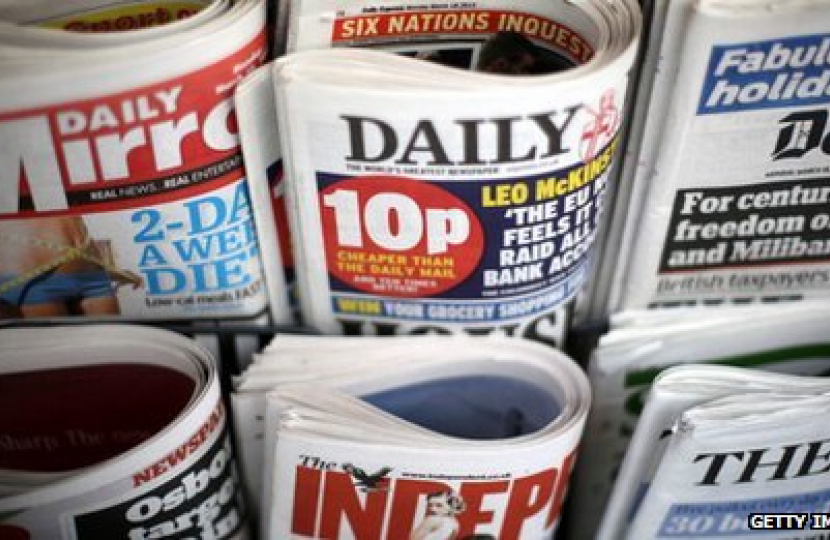
The Guardian, 19th March 2013.
"There have been hundreds of hours of detailed negotiations running month after month; delicate smoke signals sent to try to avoid causing offence and even the use of unofficial channels of communication through trusted intermediaries to deliver messages to the various rival camps. Anyone would think we were trying to avert nuclear catastrophe rather than set up a mere press regulator.
It should never have been this difficult and the Prime Minister’s frustration last week was entirely understandable. His decision to take the entire cast list of the Leveson debate over the brink with him was undoubtedly high risk but it has been vindicated. It focused everyone’s minds on making sure the parachute opened and delivered a result.
The difficulty in reaching an agreement was aggravated by the incredible mutual distrust between the newspaper editors on the one hand and the Hacked Off campaign on the other. They have been a bit like two dogs that once had a nasty fight and have never been able to forget it. They size one another up from across the room and visibly bristled when their paths crossed going in and out of Oliver Letwin’s office.
From the moment the Leveson Inquiry was set up, the press assumed the worst. In fact, Leveson’s final proposals explicitly ruled out statutory regulation of the press and instead advocated a system of voluntary, self organised regulation but with some independent oversight. But many editors have never been able to shed their conviction that his report represented an affront to a free press. It never did, and we must hope that, once a system is in place, the press can overcome their apprehension and help develop something successful.In the long term, having a credible and independent system of regulation will raise standards which could help to revive the newspaper industry model so it becomes a trusted news source whether in print or online.
On the other side of the debate, we need Hacked Off to cheer up a little bit. This agreement does implement Lord Justice Leveson’s report but by slightly different means. When the Prime Minister made clear that he wanted to avoid using statute to establish an independent recognition body, Hacked Off decided this was proof that he wanted to let the press off the hook and they cried foul at the idea that he and Oliver Letwin had met representatives of the press.The reality was much simpler.
It would have been a peculiar state of affairs not to have discussed a voluntary system of press regulation with the press themselves. After all, since Leveson himself recommended that it be voluntary, it makes a lot of sense to try to set something up that the press might actually want to volunteer to join. The great advantage of setting the system up by the use of a Royal Charter rather than through statute is that it will be a system that is equally independent but which the press themselves feel more comfortable with.
The torturous negotiations over the last two months have not been in vain. There were some important improvements made. For instance, the criteria against which any regulator will be judged have been improved to ensure that editors will not be able to veto the appointment of board members. There is, for the first time, a role for working journalists in the drafting of the press code. This is important because we need younger journalists with a stake in the future of their trade to have a greater say. Finally, there were changes made that would strengthen the incentives to newspapers to join and to simplify and improve the process for any proactive investigations where there has been systemic failure within a given newspaper.
Oliver Letwin has the patience of a saint, but this challenge tested him to his limits. After staying up until 3 am on Monday morning, he now deserves a few days off."
